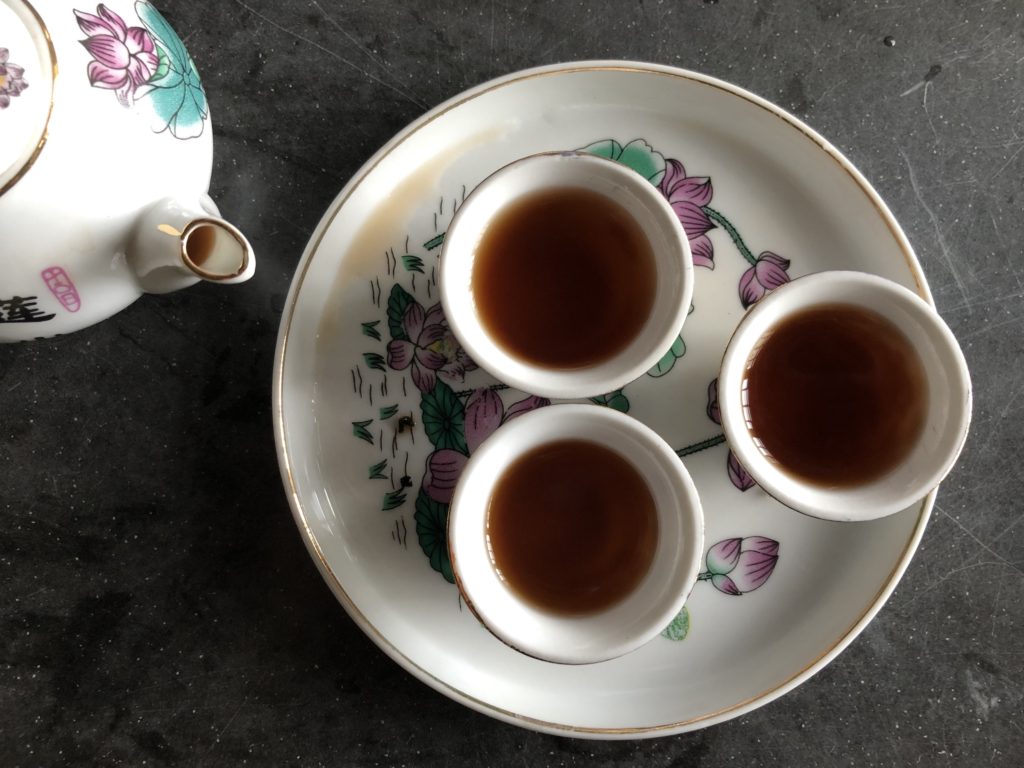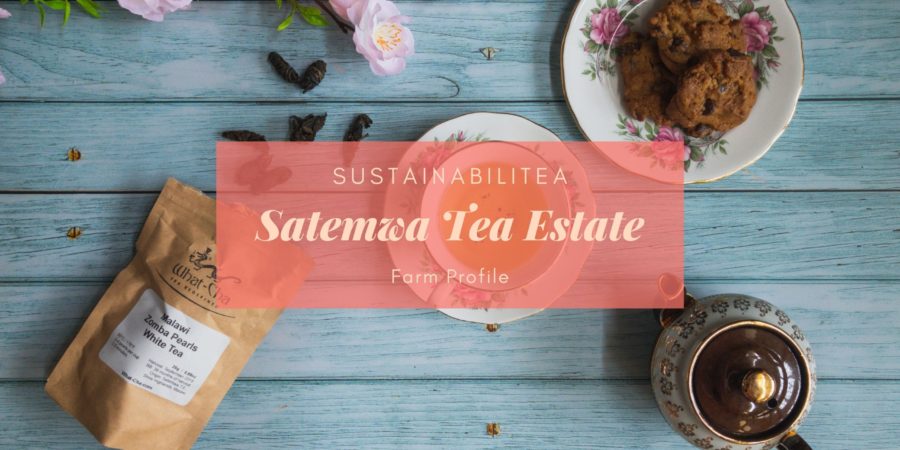Hi friends!
This is going to be the last sustainabiliTEA profile of the year before I take a break for Christmas so I’m really excited to talk to you about Satemwa Tea Estate! I first heard about this farm from Henrietta’s book Infused, and her description of their teas was so compelling that I had to try them. I fell in love with their Malawi White Antlers and well… the rest is history! I’ve been buying teas from this estate on and off, with my most recent purchase from them being their Special Satemwa Harvest. So, let’s dive into this farm and why I keep coming back for more.
Satemwa Tea Estate Introduction
Located in the Shire Highlands of Malawi, Africa, the Satemwa Tea Estate is a third-generation tea-and-coffee farm! Established in 1923, this tea farm has been crafting artisanal teas (and coffees) which have then been exported to various countries around the world.
The family behind this wonderful farm is the Kay family. The farm was founded by MacClean Kay, who bought the farm to grow tea. His son, Robert, and his Robert’s wife Dawn have continued the tradition, and now Robert’s son, Alex is in charge!

I’m pretty sure I’ve tried eight teas from this farm, which shows how good their teas are that I keep drinking them! Some of my favourite teas from them are the Malawi Green Oolong, Malawi Zomba Pearls, Bvumbwe Peony White Tea, and their Satemwa Antlers. As you can see, I love their white teas and would highly recommend them!
Planet: How Satemwa Tea Estate is caring for the environment
Farming
As a farm that has been practicing sustainable farming from its inception, the team at Satemwa Tea Estate believes that it’s important to approach green farming in a holistic manner. For them, green farmer is more than just actions such as shifting from artificial fertilizer to organic fertilizer, not applying pesticides, and bringing down their carbon footprint through energy saving projects; it’s a way of living and working that respects the planet, the people, and their products.
One clear example of how they strive to live in harmony with their environment is through their efforts to protect the indigenous wild life corridors and forests between the tea fields on Satemwa because these forests are crucial to stimulate biodiversity! They are actively sharing their knowledge and expertise in terms of plant growing and plant breeding and have helped several United Nations reforestation projects with planting material in Malawi.
You may remember the point about avoiding monoculture in my profile of NPO Sayama Agriculture Support Team – well, avoiding monoculture is just as important here! The team at Satemwa Tea Estate believes in the diversification of crops to avoid mono culture. Apart from that, they are doing several experiments with sustainable bamboo for durable construction & building works.
Another crucial aspect of green farming is living in respect to the people & communities living and working on and around Satemwa. Satemwa Tea Estate has rolled out energy saving stove projects to reduce the need for fire wood and they have financed solar panels for the communities around Satemwa. By investing care, passion & craftmanship in their plant-based products, they contribute to a healthier and greener lifestyle.
Finally, the last pillar of green farming is something that isn’t immediately obvious – marketing! The team also believes that it is of vital importance to educate business partners and consumers about all the hard work. Telling the real story behind their products is important and helps to create value to sustain our green farming practices.
Tea Sales & Packaging
Of course, with their holistic approach to being green, it shouldn’t come as a surprise that Satemwa Tea Estate takes a different approach to the sale and packaging of their tea. One thing to note is that their loose leaf speciality teas and tisanes are made in small, high quality batches and are not meant for the mass market. In other words, they are discouraging over consumption and encouraging the people who purchase their teas to focus on quality and drinking mindfully – something that I definitely agree with!
As for packaging, Satemwa Tea Estate is using packaging that protects the quality of the tea leaves but have a minimum impact on the environment. They’re also trying to reuse as much as possible – for example, they encourage the reuse of their Ziploc bags!
People: How Satemwa Tea Estate is caring for their community
One thing that I really admire about Satemwa is that most of their workers are employed year round instead of seasonally – about 1200 people are permanent employees, and of those 1200 employees, about 28% of them are women. As the first Fair Trade certified tea estate in Malawi, they pay their employees fair wages that are in line with tea sector agreements in Malawi. Additionally, when their Fair Trade certified teas are sold, the Fair Trade premium goes to sustainable community projects. Satemwa also provides their employees and their families benefits such as nurseries, primary school education, free health care, and much more!
Additionally, Satemwa does its best to involve its international customers in community projects in and around Satemwa. I follow the Rare Charity on Instagram and I’m always impressed by how this foundation helps provide students with bursaries for their education! They’ve also done a classroom re-painting project in the Satemwa school with Café Mundi / Cross roasts, one of their B2B customers in Belgium. Personally, I like this concept of involving parties down the value chain to improve the lives of the people involved in bringing us tea!
How to Buy Satemwa Teas and learn more
If you feel like supporting Satemwa Tea Estate directly, they have an online shop. I’ve bought their teas through both the Rare Tea Company and What-Cha and have enjoyed the teas from them!
And if you’d like to read more about this amazing farm, they have been profiled on STiR, and Alfred Mwase, their factory manager, was also interviewed in Tea Journey. I highly recommend reading these two articles for even more information on their teas!
Featured Image: The featured image is a photo I took of their Zomba Pearls, which I highly recommend!

this sounds like such a sustainable and caring brand!
Right?? I love all that they are doing – proving that craft and ethics can go hand in hand!